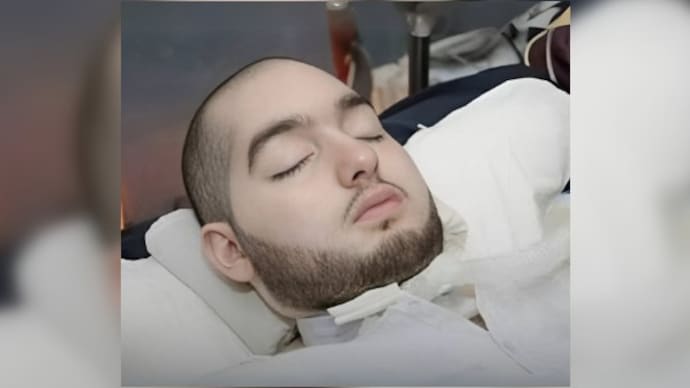By John Ogunsemore
Prince Al-Waleed bin Khaled bin Talal Al Saud, widely known as Saudi Arabia’s “Sleeping Prince,” passed away on Saturday, July 19, at the age of 36, after nearly two decades in a coma.
His father, Prince Khaled bin Talal Al Saud made the announcement in an post on X.
He said, “With hearts believing in Allah’s will and decree, and with deep sorrow and sadness, we mourn our beloved son: Prince Al-Waleed bin Khaled bin Talal bin Abdulaziz Al Saud, may Allah have mercy on him, who passed away today.”
The sleeping prince had suffered a tragic car accident in London in 2005 that left him with severe brain injuries.
Prince Al-Waleed, who was 15 at the time of the accident, was studying at a military college in the United Kingdom when the crash occurred.
The incident caused critical brain hemorrhaging and internal bleeding, leading to a persistent vegetative state.
He was transferred to King Abdulaziz Medical City in Riyadh, where he remained on life support under continuous medical care for 20 years.
Over the years, Prince Al-Waleed became a symbol of hope and resilience, earning the nickname “Sleeping Prince” on social media.
His father, a nephew of billionaire investor Prince Alwaleed bin Talal, consistently rejected medical advice to discontinue life support, holding firm in his belief that his son could recover.
“If God had wanted him to die in the accident, he would have been in his grave now,” Prince Khaled said in a past interview.
The prince’s condition drew widespread attention, with occasional videos shared by family members showing minimal signs of movement, such as lifting a finger or turning his head.
A 2019 clip of the prince moving his head sparked hope among well-wishers, though medical reports confirmed no significant recovery.
Earlier this year, a viral video falsely claiming he had awakened was debunked, clarifying that it depicted Saudi rally driver Yazeed Mohamed Al-Rajhi, not the prince.
Funeral prayers for Prince Al-Waleed were held on Sunday, July 20, 2025, after the Asr prayer at Imam Turki bin Abdullah Mosque in Riyadh, followed by a three-day mourning period.


